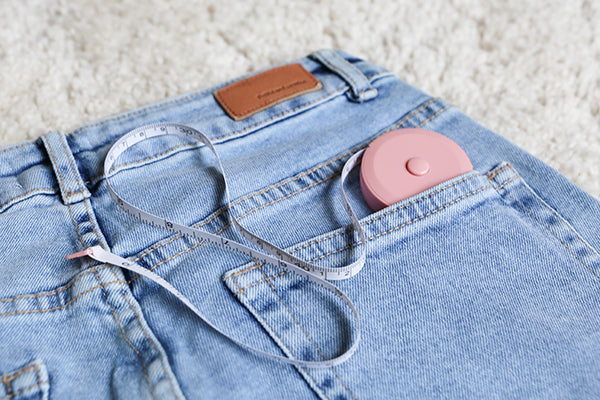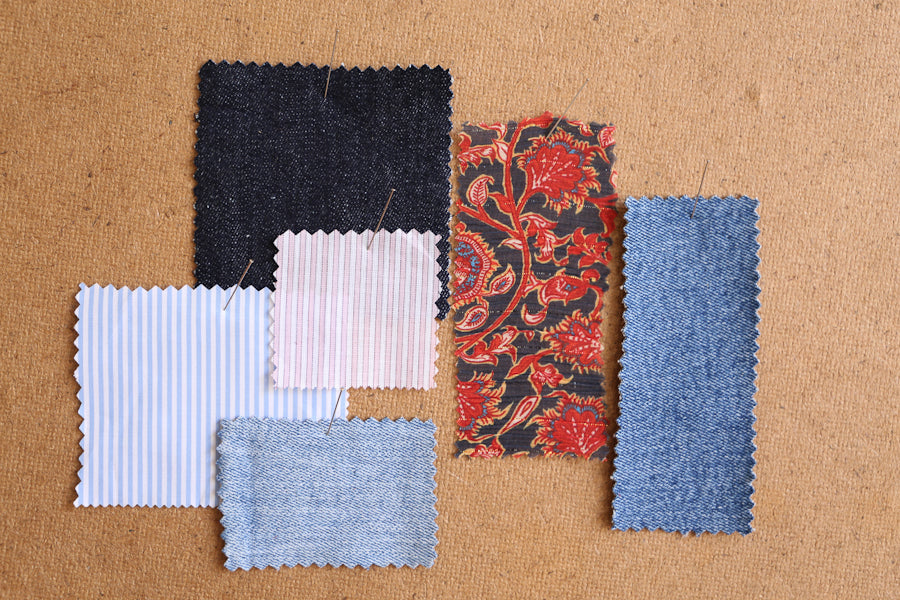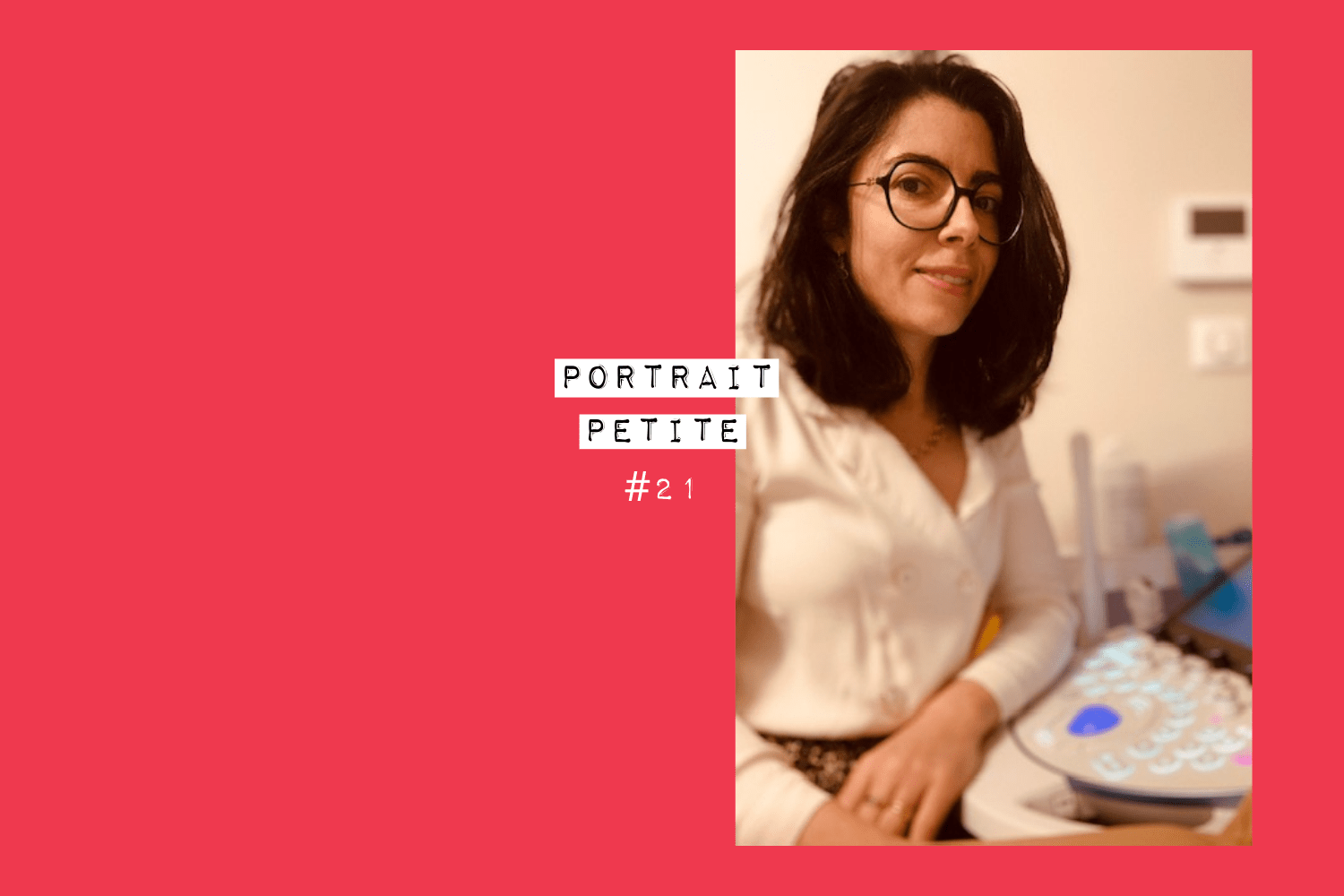Aujourd'hui, je vous présente Blandine Hougas, une petite gynécologue d'1m55 qui, en cette journée spéciale, vient nous parler d'endométriose ! Passionnée par son métier, elle œuvre au quotidien pour le bien-être des femmes.
"Il est primordial de ne pas subir la douleur. Il ne faut pas rester avec un corps qui nous meurtrit. Les femmes prennent déjà trop souvent sur elles, il ne faut pas accepter la douleur. "
Peux-tu te présenter et nous parler de ton parcours ?
Je suis Blandine Hougas, j’ai 44 ans, et je suis médecin gynécologue obstétricienne. J’ai commencé mes études de médecine à Paris XII (Créteil), puis je suis partie à Toulouse pour mon internat. Là-bas, je me suis découvert une véritable passion pour mon travail et je me suis très vite orientée vers le diagnostic anténatal, en réalisant principalement des échographies fœtales. Puis j'en suis venue à m'intéresser aux échographies gynécologiques, avec un focus particulier sur l’endométriose, une pathologie encore peu connue à l’époque.
Est-ce que la médecine a toujours été une vocation pour toi ?
Oui, la médecine a toujours été une vocation pour moi. Cependant, je m’étais jurée de ne jamais devenir gynécologue et de ne jamais vivre à Toulouse. Comme quoi, tout peut changer ! Au début, je voulais travailler en réanimation néonatale, un domaine que j’admire énormément, mais je savais que ce travail demandait une grande résistance morale. Perdre des bébés est extrêmement difficile et je n'étais pas préparée à vivre cela. Finalement, je suis tombée dans la gynécologie.
Pour ceux qui ne connaissent pas bien la maladie, peux-tu expliquer ce qu'est l'endométriose ?
L'endométriose est une pathologie qui touche les femmes dès la puberté. Elle résulte de l’implantation anormale des cellules de la muqueuse utérine. En temps normal, ces cellules s'évacuent lors des règles si la grossesse ne survient pas. Cependant, chez beaucoup de femmes, des cellules remontent dans les voies génitales et chez certaines, ces cellules viennent s'accrocher sur le péritoine, la membrane qui recouvre les organes du petit bassin. Cela entraîne une réaction inflammatoire, formant des nodules qui peuvent devenir très douloureux à chaque cycle menstruel.
Quels sont les symptômes les plus fréquents ?
Le symptôme le plus fréquent est la douleur, notamment pendant les règles. D'autres symptômes lui sont associés, comme des douleurs à la selle, en urinant ou lors des rapports sexuels. De plus en plus de femmes décrivent aussi des signes généraux d'inflammation, comme un ventre gonflé et une fatigue accrue, surtout pendant les règles.
L’endométriose peut-elle entraîner des douleurs en dehors des règles ?
Bien sûr, l’endométriose n’est pas seulement une douleur liée aux règles. C’est une maladie chronique qui touche tout le cycle menstruel, les douleurs étant exacerbées pendant les règles. L'endométriose profonde, en particulier, créé une sorte de "ciment" entre les organes censés être mobiles. Les intestins ne coulissent plus, la vessie se bloque et les terminaisons nerveuses sont irritées, ce qui provoque des douleurs continues.
Comment l'endométriose impacte-t-elle la vie des patientes ?
Par exemple, j'avais une patiente qui s'évanouissait à chaque fois qu’elle allait aux toilettes ! Pour d’autres, cela impacte leur capacité à travailler, à s’occuper de leurs enfants, voire à maintenir des relations intimes. Ces douleurs peuvent toucher tous les aspects de la vie quotidienne autant professionnelle que personnelle. Il faut retenir qu'il existe autant de formes d'endométriose que de femmes et qu'il est très difficile de prédire l'évolution de l'inflammation.
Aujourd'hui, est-il facile de poser un diagnostic d'endométriose ?
Cela a longtemps été compliqué. On pensait que souffrir pendant les règles était normal, ce qui a conduit à un retard dans la prise de conscience de la maladie. Aujourd’hui, même si des progrès ont été réalisés grâce à des campagnes de sensibilisation, certaines femmes se voient répondre que l'endométriose est juste un phénomène de mode et qu’il n’y a pas besoin de diagnostic.
Le plus difficile reste l’accès aux soins : mes patientes mettent parfois 4 à 5 mois avant d'obtenir un rendez-vous auprès de spécialistes. De plus, le diagnostic est délicat. Parfois, malgré des douleurs évidentes, l’échographie ne révèle rien. Il peut s'agir de lésions planes qui ne vont pas donner de signes échographiques clairs. Il peut être nécessaire de recourir à une IRM, mais même cela peut ne pas suffire.
Quels sont les traitements existants et leurs limites ?
Le traitement recommandé est principalement hormonal, visant à supprimer les règles pendant au moins 18 mois. Dans les cas plus sévères, où il y a des répercussions sur les organes digestifs, urinaires, ou alors dans un objectif de grossesse à court terme, une intervention chirurgicale peut être envisagée. Cependant la chirurgie comporte des risques et n'est pas une solution miracle. Elle peut notamment comporter des douleurs post-opératoires. Je pense qu'il faut toujours choisir ce qui abîme le moins le corps et je soutiens que le traitement hormonal doit être essayé malgré les réticences de plus en plus grandes des femmes à la prise d'hormones. Et si jamais le traitement ne convient pas, plusieurs autres possibilités sont à notre disposition, permettant un large choix d'options.
En parallèle, des traitements de support sont utilisés, on travaille beaucoup en collaboration avec des diététiciens pour établir des régimes anti-inflammatoires, par exemple. Ou encore, avec des ostéopathes ou kinésithérapeutes pour soulager les tensions musculaires au niveau du pelvis et réduire les douleurs des patientes. Finalement, les médecins de la douleur ainsi que les psychologues jouent un rôle clé dans la prise en charge des femmes douloureuses.
Quels préjugés aimerais-tu déconstruire au sujet de l’endométriose ?
Bien que la parole se soit libérée, beaucoup de femmes se voient répondre que leurs douleurs sont "imaginaires" ou qu’elles doivent "arrêter de regarder les réseaux sociaux". Ce type de réponse est non seulement offensant, mais aussi très décourageant. Il est important de rappeler que le diagnostic d’endométriose n'est pas toujours évident. Même sans diagnostic formel, la douleur doit être prise au sérieux et il existe des solutions pour aider ces femmes.
Quel conseil donnerais-tu à une femme suspectant une endométriose mais ne sachant pas vers qui se tourner ?
Je leur conseille de se rapprocher d'associations comme EndoFrance, qui peuvent les mettre en contact avec des professionnels spécialisés. Ces professionnels ont suivi une formation spécifique et ont les compétences nécessaires pour interroger et examiner les patientes. et examiner les patientes. Cela peut leur faire gagner du temps et éviter de s’épuiser à chercher des réponses au mauvais endroit.
Comment la recherche sur l’endométriose a-t-elle évolué ?
Il y a eu de réels progrès dans la prise en charge de l’endométriose, notamment avec de nouveaux traitements et plus de recul sur leur efficacité. Par exemple, Toulouse et d'autres régions pilotes commencent à mettre en pratique un test salivaire permettant de déterminer si la patiente est atteinte d'endométriose. Sachant que plus la patiente est jeune et plus le diagnostic est difficile à établir, nous avons hâte que ce test puisse être généralisé à toutes les femmes, même avant 18 ans.
Cependant, il reste beaucoup à faire, en particulier pour les femmes en résistance au traitement ou en récidive. La recherche sur la préservation de la fertilité est aussi un axe crucial car de nombreuses femmes ont des difficultés à concevoir en raison de l'endométriose.
En quoi l’endométriose impacte-t-elle la fertilité ?
Déjà l’inflammation peut perturber la rencontre ovule/ spermatozoïde. Ensuite les adhérences ou des lésions sur les trompes peuvent empêcher le passage de l’œuf jusque dans l’utérus. On peut aussi avoir des lésions d’adénomyose (atteinte de l’utérus), ce qui empêche l’embryon de s’implanter. Parfois ce sont les ovaires qui sont touchés soit par des kystes d’endométriose soit par des actes de chirurgie. Et avec les douleurs, les rapports sexuels ne sont pas forcément aussi fréquents.
Conseilles-tu aux femmes atteintes d’endométriose de concevoir plus tôt ?
L’âge est un facteur aggravant, c’est pourquoi la question de la fertilité doit se poser rapidement lors de suspicions d’endométriose. Encore une fois, des solutions existent, nous proposons, par exemple, aux femmes avec une atteinte ovarienne et qui le souhaitent, des préservations ovocytaires pour leur permettre de réaliser leur projet parental plus tard. Cependant, il y a les statistiques d’une part et les bonnes surprises de la vie de l’autre, il ne faut donc pas se décourager d’avoir des enfants de manière naturelle, peu importe l’âge !
Quel rôle joues-tu dans l’accompagnement de ces patientes ?
Mon rôle principal est de poser un diagnostic précis. Je réalise des échographies pour confirmer l'endométriose et je suis ensuite impliquée dans le suivi de l’évolution des lésions. Les patientes me sont souvent adressées par des gynécologues ou des sages-femmes.
Je joue également un rôle d’accompagnement psychologique, car de nombreuses femmes se sentent perdues lorsqu’elles reçoivent ce diagnostic. Je trouve ma place dans l'information de ces femmes qui pensent que l'endométriose signifie infertilité ou douleurs chroniques à vie. Il est essentiel de leur donner des informations claires et d’entretenir l'espoir car des traitements qui fonctionnent existent. Je trouve qu'il est important d'apprendre à apprivoiser son corps, contrôler son stress, faire du sport, manger mieux, arrêter le tabac, etc., car en prenant soin de sa santé au global, on arrive déjà à faire beaucoup.
Qu’est-ce qui est le plus gratifiant dans ton métier ?
Le plus gratifiant, c’est lorsque je pose enfin un diagnostic et que la patiente comprend ce qu’il se passe dans son corps. La plupart du temps, elles en pleurent de joie, car elles réalisent que ce n’était pas que "dans leur tête". C’est un soulagement immense où elles me remercient. Donc oui, on arrive à être émue en gynéco !
À l'inverse, qu’est-ce qui est le plus difficile dans ton travail ?
Le plus difficile, c’est quand je ne trouve pas de solution. Cela peut être frustrant pour moi, car on se remet en question, mais aussi pour la patiente, qui a une impression d'abandon. Je m’efforce de ne jamais laisser mes patientes sans réponse. Nous explorons toutes les autres pistes possibles (qui sont nombreuses) et je leur explique chaque étape pour qu'elles ne se sentent pas délaissées avec une douleur qui perdure.
Le métier de médecin est-il difficile à concilier avec ta vie personnelle ?
C’est un métier de passion très prenant, mais j’ai la chance d’avoir un mari qui me soutient énormément. Je me forme régulièrement et participe à des congrès, parfois à l'international, pour continuer de me former sur l'endométriose, ce qui est d'autant plus prenant ! Mais, je m’efforce de trouver un équilibre, de poser des limites et de réserver du temps pour ma famille. Je crois qu’on ne peut être un bon médecin que si l’on prend soin de soi-même.
Quels conseils donnerais-tu aux femmes pour mieux connaître leur corps et leur santé gynécologique ?
Alors ça, c'est une bonne question ! Je leur conseille souvent de tenir un carnet pour suivre leurs symptômes, leur qualité de sommeil, leur niveau de stress, et de noter ce qu’elles mangent. Cela peut les aider à repérer des déclencheurs de douleur, comme certains aliments ou habitudes. Il existe aussi des applications, comme Endo Ziwig, qui peuvent les aider à mieux comprendre l’endométriose et à suivre leur santé gynécologique. J'aimerais avoir le temps de développer un site pour retrouver facilement tous les conseils que je donne en consultation !
Un message à transmettre aux femmes atteintes d’endométriose ?
Ne jamais lâcher ! Mon message est celui d'une femme à une autre femme : "Nous avons un corps pour toute notre vie, c'est une nécessité d'être bien dedans". Il est primordial de ne pas subir la douleur. Il ne faut pas rester avec un corps qui nous meurtrit. Les femmes prennent déjà trop souvent sur elles, il ne faut pas accepter la douleur. Continuer de l'aider, continuer de chercher des réponses, même si le diagnostic peut être long.
Pour finir, quelques questions pour mieux te connaître :
Et en dehors de la médecine, quelles sont tes passions ?
Je suis une grande lectrice et j’aime courir en montagne. J’adore aussi cuisiner, bien que mes enfants me disent souvent que mes plats sont un peu trop "légers" à leurs goûts ! Mais je pense à leur santé, donc je ne me laisse pas décourager.
Si tu devais citer un objet qui ne quitte jamais ton sac ?
Mon anti-inflammatoire ! Je suis migraineuse et je ne m’en sépare jamais.
As-tu une anecdote à partager sur ton expérience en médecine, surtout en tant que femme dans un milieu parfois masculin ?
Une anecdote qui m’a marquée en tant que femme et en tant que petite ! Elle remonte à mes années d'internat. J’étais en stage de chirurgie avec un chirurgien très grand, au moins 1m90. En milieu d'opération, il s'énerve car je ne l'assiste pas correctement et demande à ce qu'on aille me chercher un marchepied car je suis trop basse… alors que j'étais déjà sur un marchepied ! J'ai fini l’opération perchée sur deux marchepieds, à plus de 60 cm du sol. C'était un vrai défi, mais on y arrive toujours, même dans les situations les plus improbables !










